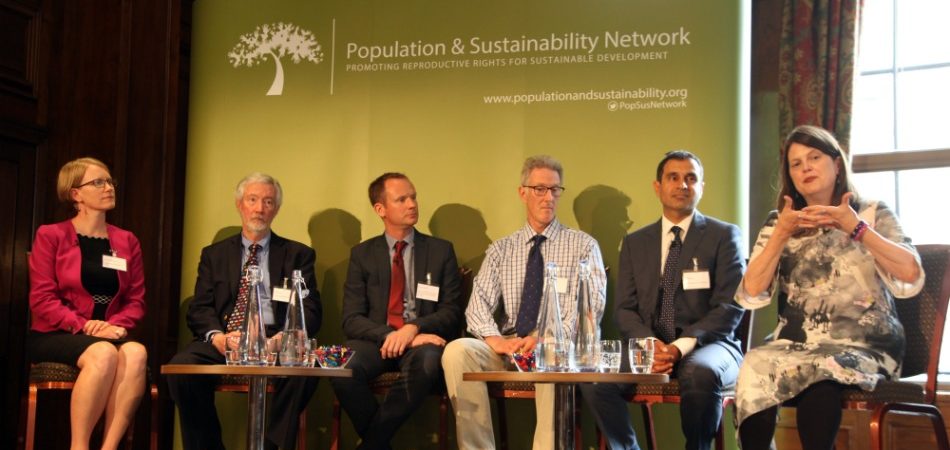As part of the global Family Planning Summit held in London on 11th July, the Population & Sustainability Network coordinating member, the Margaret Pyke Trust, hosted a major event in London, highlighting why reproductive health and rights are not only critical for the health and empowerment of women and girls, but also how family planning can strengthen conservation efforts.
Family planning is one of the most transformative and cost effective tools in global development. When women and girls have access to family planning, they are able to choose if and when to have children, remain in school longer, improve their health, contribute more fully to the economy, and fulfill their potential.
However, 214 million women and girls in developing countries do not have access to family planning. Looking to change this reality are the policymakers, donors and advocates who came together last week at the London Family Planning Summit, to discuss how to boost investments in rights-based, voluntary family planning programs. The aim of the Population & Sustainability Network event, was to help shape that summit.
Rural communities often rely on healthy ecosystems for their own health and livelihoods. When ecosystem health is threatened, so too is human health. In developing countries, barriers to family planning services are, almost invariably, greatest in rural areas. The areas of most conservation significance, where communities rely most directly on ecosystem health for their livelihoods (and which are being most directly impacted by climate change) are therefore often the same. These were the issues considered in the event, “A win-win for human and environmental health: How conservation programs can be strengthened by meeting family planning needs.”
Video footage of from the Margaret Pyke Trust, with the Population & Sustainability Network:
“Human and environmental health are inextricably linked and holistic solutions are needed to address these development challenges”, affirms David Johnson, Chief Executive of the Margaret Pyke Trust. Carina Hirsch, PSN Advocacy and Projects Manager, added, “Family planning has been proven to be a ‘win-win; for human and environmental health, and that is why we held this event, to seek to encourage the conservation and climate change sectors to understand that supporting reproductive health and rights is not only the right thing to do, but it will also strengthen conservation programs”.
The PSN event brought together leaders in the field of integrating reproductive health and rights actions, within conservation and climate change projects. Experts presented integrated solutions to these complex development challenges, including the Population, Health and Environment or “PHE” approach. PHE is an integrated, community-based approach to development, acknowledging and addressing the complex connections between people, their health, and their environment. Addressing these challenges in an integrated manner kick-starts positive chain reactions leading to greater development outcomes in all sectors concerned.
David concluded, “Integration remains a much used phrase but still little used in practice. Our event shed light on the importance and effectiveness of such approaches, as human and environmental health depend on it.”
You can access a full video recording of the event here.
David Johnson is the Chief Executive of PSN and Carina Hirsch is the Advocacy and Projects Manager. You can learn more about the Population & Sustainability Network through the group’s node profile or its website.
The MAHB Blog is a venture of the Millennium Alliance for Humanity and the Biosphere. Questions should be directed to joan@mahbonline.org
MAHB Blog: https://mahb.stanford.edu/blog/family-planning-summit-recap/
The views and opinions expressed through the MAHB Website are those of the contributing authors and do not necessarily reflect an official position of the MAHB. The MAHB aims to share a range of perspectives and welcomes the discussions that they prompt.
